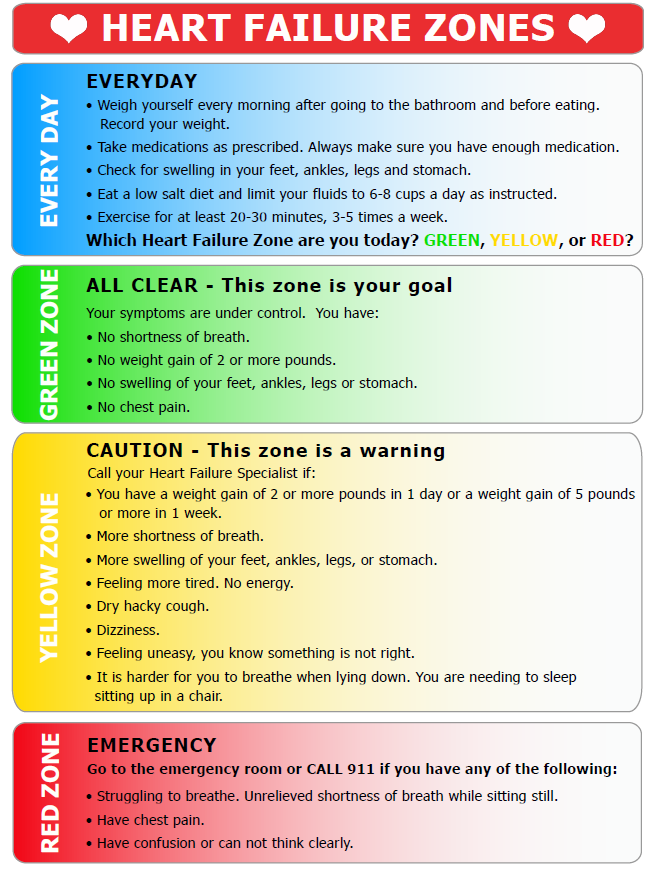Congestive Heart Failure is a serious condition that develops when a person’s heart cannot pump enough blood and oxygen to support other organs in the body. According to the CDC, about 6.2 million adults in the United States have heart failure. The term “heart failure” sounds like the heart is no longer working at all, but it actually means the heart simply isn’t pumping as well as it should.
A person’s body depends on the heart’s pumping action to deliver oxygen and nutrient rich blood to the body’s cells. When cells are nourished properly, the body can function normally. In heart failure, the weakened heart can’t supply the cells with enough blood and the body experiences symptoms like fatigue and shortness of breath. Other symptoms include cough, rapid weight gain, and swelling in the legs, ankles and feet. As the disease progresses, some patients are even short of breath at complete rest and require added oxygen to breathe.
Managing Your Diagnosis
If you or a loved one have received a congestive heart failure diagnosis, there is hope for maintaining the best quality of life possible through embracing heart healthy habits. Your physician will prescribe specific heart healthy diet instructions and medications to help reduce your symptoms. Frequently the orders will include the following areas of life change:
- Weighing daily and reporting weight gain (3 lbs in 24 hours or 5 lbs in a week)
- Reducing the sodium content in your diet to 2 grams (2000 mgs) or less per day.
- Reducing fluid intake to 2000 milliliters (mls) or less per day.
- Taking your medications as prescribed.
- Regular exercise.
- Keeping your appointments with your physicians.
- Stop smoking.
- No alcohol or drug use.
Deaconess Heart Failure Navigation Program
Making major life changes can be overwhelming, which is why Deaconess has developed a Heart Failure Navigation Program to help patients coordinate their care and manage their heart failure after their diagnosis.
The program is designed to provide extensive patient education and resources for you and your caregivers, which can include dietary consultations, a medication therapy management clinic, cardiac rehab, palliative care and a dedicated team to guide you.
Heart Failure Nurse Coordinators
We have a dedicated team of registered nurses called "Heart Failure Nurse Coordinators" to help heart failure patients navigate their health journey. Our nurse coordinators will work with you or your caregiver to make sure you have your prescribed medications, confirm follow up appointments are scheduled, assess to see if additional services are needed, and provide education.
Know Your Zone
Since Congestive Heart Failure must be managed on a daily basis, our team will teach you how to check your “Heart Failure Zone” every day to make sure you are in the GREEN ZONE. If you are not in the GREEN ZONE, then you need to call your Heart Failure Nurse Coordinator as soon as possible.

The goal of our program is to help heart failure patients self-monitor so symptoms can be caught early and action can be taken to try to prevent being admitted to the hospital. For additional information and resources, please visit our
Congestive Heart Failure section on our website.